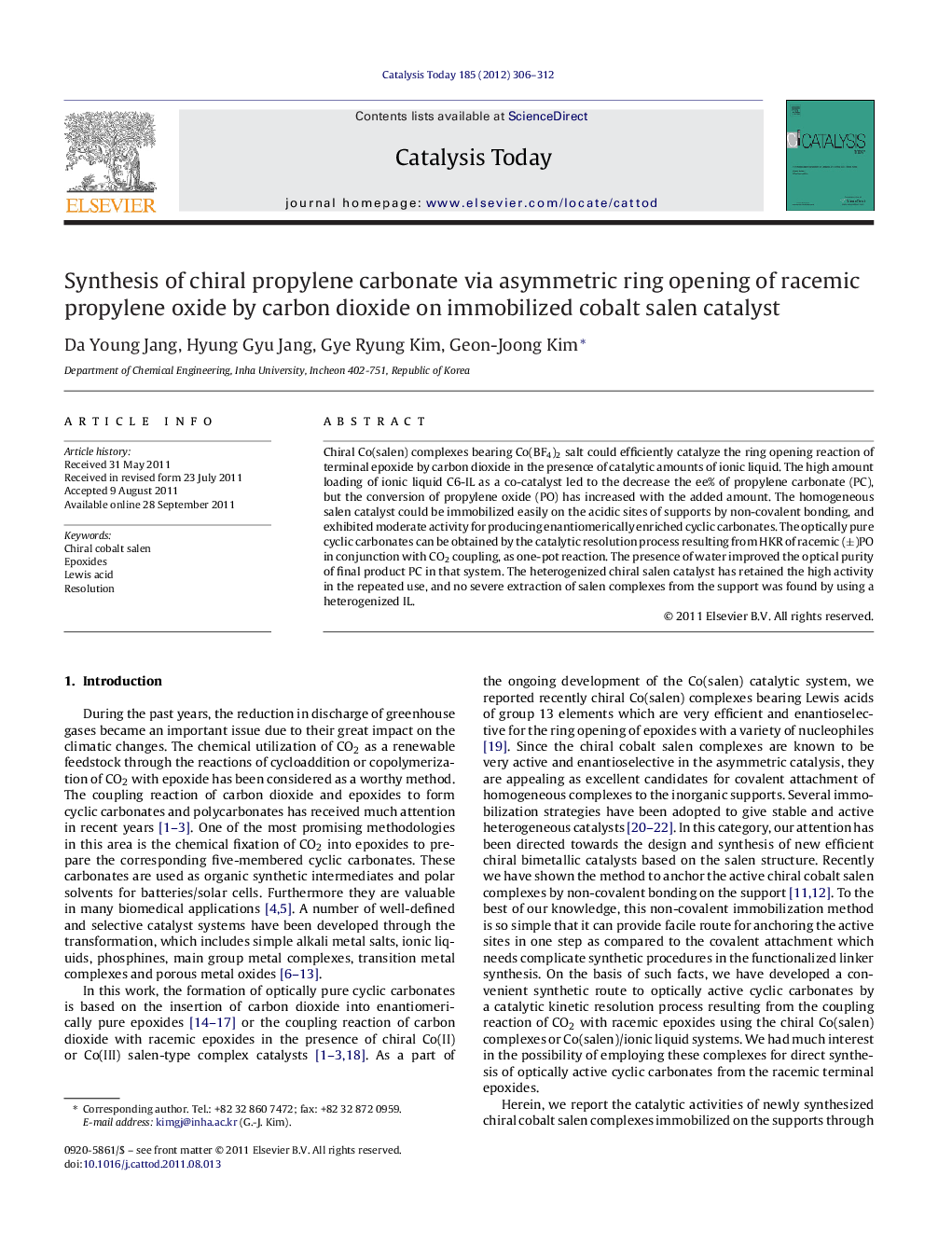| Article ID | Journal | Published Year | Pages | File Type |
|---|---|---|---|---|
| 55542 | Catalysis Today | 2012 | 7 Pages |
Chiral Co(salen) complexes bearing Co(BF4)2 salt could efficiently catalyze the ring opening reaction of terminal epoxide by carbon dioxide in the presence of catalytic amounts of ionic liquid. The high amount loading of ionic liquid C6-IL as a co-catalyst led to the decrease the ee% of propylene carbonate (PC), but the conversion of propylene oxide (PO) has increased with the added amount. The homogeneous salen catalyst could be immobilized easily on the acidic sites of supports by non-covalent bonding, and exhibited moderate activity for producing enantiomerically enriched cyclic carbonates. The optically pure cyclic carbonates can be obtained by the catalytic resolution process resulting from HKR of racemic (±)PO in conjunction with CO2 coupling, as one-pot reaction. The presence of water improved the optical purity of final product PC in that system. The heterogenized chiral salen catalyst has retained the high activity in the repeated use, and no severe extraction of salen complexes from the support was found by using a heterogenized IL.
Graphical abstractFigure optionsDownload full-size imageDownload high-quality image (198 K)Download as PowerPoint slideHighlights► The homogeneous chiral Co(salen) complexes bearing Co(BF4)2 salt was immobilized on the acidic supports by non-covalent bonding. ► The optically pure cyclic carbonates were obtained by HKR of racemic (±)PO in conjunction with CO2 coupling, as one-pot reaction. ► The heterogenized chiral salen catalyst has retained the high activity in the repeated use.
